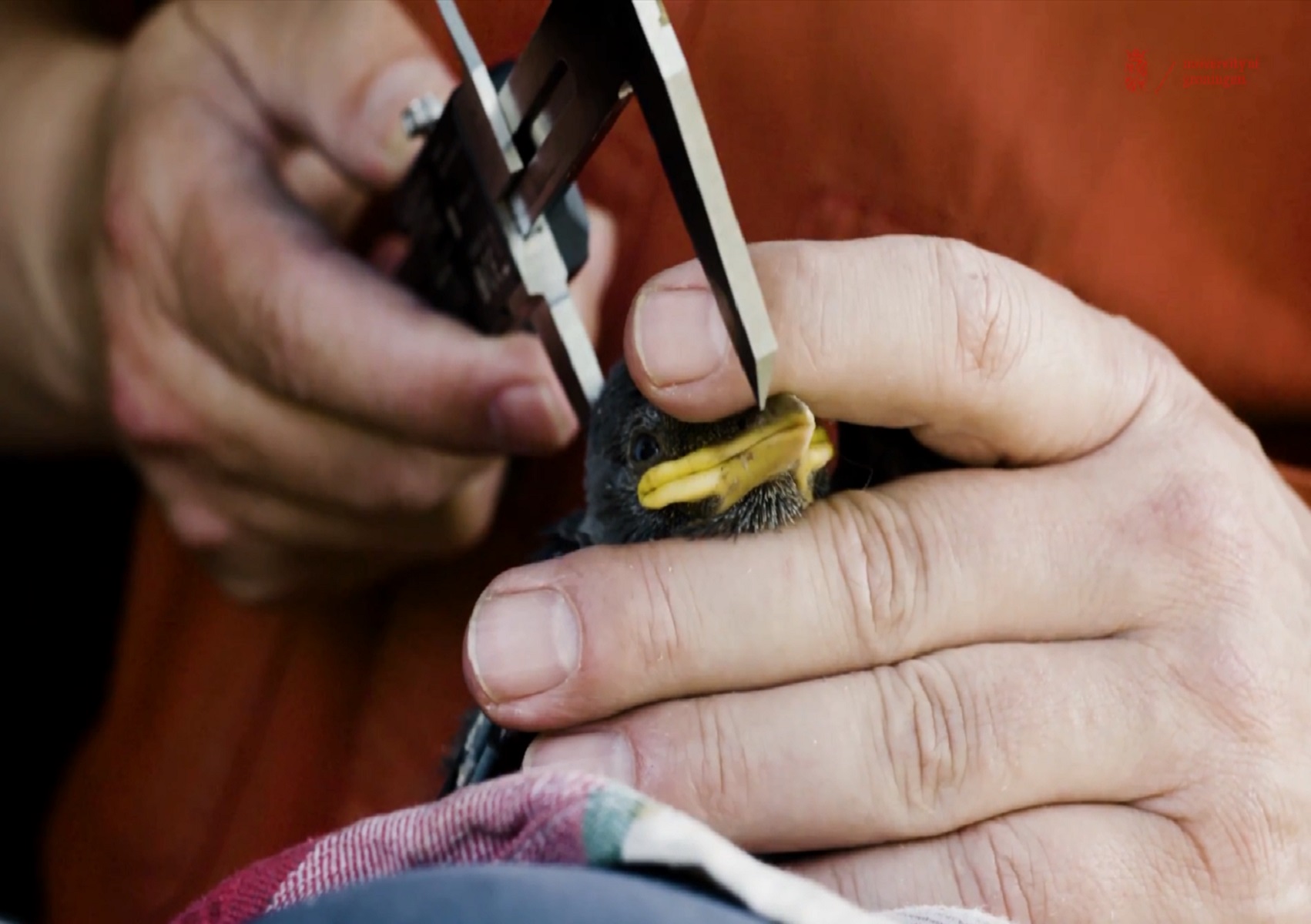The unusual heredity of telomere length
Epigenetic effects play an important role in the inheritance of telomere length. At least a third of the inheritance has an epigenetic nature. These are the conclusions of UG researchers who outlined this phenomenon for the very first time by observing jackdaws in the wild.
Telomeres are DNA structures that protect the ends of chromosomes. Animals and humans with long telomeres are healthier and have a longer life expectancy. This means that it is important to know what causes telomere length variation. The research results will be published in the PLOS Genetics on 14 February 2019.
Unusual heredity
Generally speaking, parents with long telomeres have children with long telomeres, as telomere length variation is mainly genetically determined. However, the way telomere length is inherited is unusual, because a fertilized ova already has a certain telomere length: namely that of the ova and the sperm cell. Therefore, it is possible that telomere length is not only determined by genetic variation, but also directly by the telomere lengths of the ova and sperm cell. This is an unusual form of heredity, named epigenetics, as the inheritance takes place through DNA without genetic code playing a role. It is not yet known how important this aspect of the heredity of characteristics is.
Evolution
The research project, led by Professor of Evolutionary Biology Simon Verhulst, shows that at least a third of telomere length inheritance can be attributed to an epigenetic effect. The results therefore show that epigenetic inheritance can be important. A consequence of epigenetic inheritance is that telomere length can develop much faster in comparison with characteristics that develop solely from genetic code.
The research into telomere length heredity in jackdaws (a small, crow-like bird) is part of a wider UG research project into the causes and effects of telomere length variation. The project is described in this video:

More information
- UG spokesperson Jorien Bakker, tel. 06-11800452
- Prof. Simon Verhulst, tel. 06-25182955, s.verhulst@rug.nl
| Last modified: | 19 March 2020 3.39 p.m. |
More news
-
29 April 2024
Tactile sensors
Every two weeks, UG Makers puts the spotlight on a researcher who has created something tangible, ranging from homemade measuring equipment for academic research to small or larger products that can change our daily lives. That is how UG...
-
29 April 2024
Behind the scenes: how UG and Hanze UAS students are jointly developing a Mars rover
This year the students of the Makercie team are participating in the physical edition of the European Rover Challenge in Poland. Read more about the team and the collaboration between the RUG and Hanze UAS here.
-
23 April 2024
Nine MSCA Doctoral Network grants for FSE researchers
Nine researchers of the Faculty of Science and Engineering have received a Horizon Europe Marie Sklodowska Curie Doctoral Network grant.
